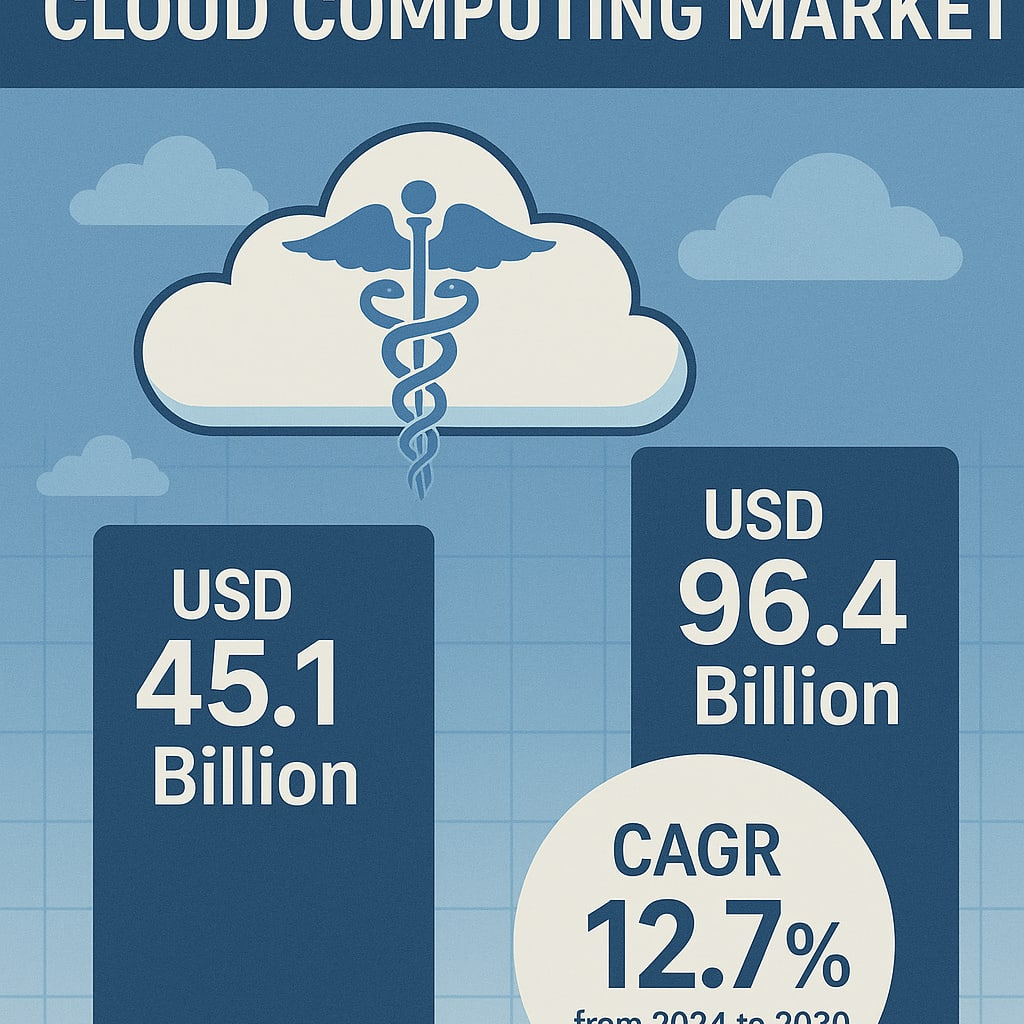The global shift toward digital healthcare has made cloud computing a core technology for smarter, faster, and more connected care. Innovations in the healthcare cloud computing market are leading the way in enabling everything from improved electronic health records (EHRs) to AI-driven diagnostics and telemedicine.
According to industry analysts, the market for healthcare cloud computing market is expected to reach USD 45.1 billion, with a CAGR of 12.7%, from USD 22.0 billion in 2024. Drivers for this growth include the cost, scalability, interoperability, and inherent advantages of the cloud, especially the need for secure, real-time access to health data.
Why Cloud Computing Is Critical to Healthcare
Cloud computing allows for the storage, access, and analysis of patient data at scale, without on-premise IT and support teams. It also facilitates real-time collaboration between providers, better decision-making, and quicker deployment of digital solutions across locations.
Key Healthcare Cloud Computing Innovations
AI & Machine Learning
The integration of artificial intelligence (AI) and machine learning (ML) into cloud-based platforms is a major healthcare cloud computing trend. This technology allows providers to:
• Analyze data sets for predictive analytics and risk assessments
• Automate manual administrative tasks like billing and medical coding
• Support clinicians with diagnostic suggestions based on image recognition or patient history
• Cloud platforms offer the computing power and centralized data lakes needed to train and deploy these algorithms across facilities.
Telehealth & Remote Patient Monitoring (RPM)
Cloud computing is the enabler behind the exponential rise of telehealth and remote patient monitoring (RPM) solutions. These tools rely on cloud platforms to store patient data and provide real-time video consultation capabilities. In addition to improving access to care in rural and underserved locations, telehealth and RPM have:
• Reduced patient wait times and hospital readmission rates
• Enabled 24/7 monitoring for at-risk patients using wearable health devices
These solutions also aid chronic care management, particularly in cardiovascular, diabetic, and elderly care.
Cybersecurity & Compliance
The sensitivity of healthcare data has led cloud service providers to embed zero-trust architecture, end-to-end encryption, and multi-factor authentication into their offerings. Additionally, most healthcare cloud providers now offer the following:
• Compliance with HIPAA, GDPR, and HL7 standards
• Blockchain technology for secure data exchange and audit trails
• Identity and access management (IAM) for patient privacy controls
• Interoperability & FHIR-Based APIs
The use of FHIR (Fast Healthcare Interoperability Resources) standards to build new cloud-based platforms is growing, especially as major cloud providers and IT vendors seek to break data silos between providers, insurers, and government systems. These improvements can support:
• Continuity of care across multiple facilities
• More accurate and up-to-date patient records
• Migration of legacy EHR systems to modern cloud platforms
• Healthcare SaaS Platforms
The healthcare industry is shifting toward the use of SaaS models for various health IT needs and functions. This can include plug-and-play solutions for:
• Appointment scheduling software
• Claims processing and management
• Patient engagement portals and health apps
• Population health and outcomes analytics tools
Providers can reduce their capital expenses while increasing agility and operational efficiency.
Notable Players & Collaborations
Tech giants like Microsoft Azure, AWS, Google Cloud, IBM Watson Health, and Oracle Health are competing with healthcare-focused vendors like Cerner, Allscripts, and Athenahealth to lead in the healthcare cloud computing space. Additionally, there are many collaborations between hospitals and tech firms to co-develop and accelerate adoption of products.
Example: Mayo Clinic Partnering With Google Cloud
The Mayo Clinic and Google Cloud partnered to build a unified and longitudinal repository of patient data to help advance patient care and research.
Healthcare Cloud Computing Market Challenges
The healthcare cloud computing market has some headwinds to address:
• Data silos and legacy systems within hospitals
• Gaps in digital literacy and support for healthcare professionals
• Initial costs and complexity of migration and integration
• Patient consent management in cloud environments
Conclusion: Innovating in the Cloud-First Future of Healthcare
The cloud-first future of healthcare is already here, and it is about much more than just data storage. It is about automating intelligent functions, creating patient-centric care models, and scaling operations globally.
With ongoing innovation in AI, cybersecurity, and data interoperability, the healthcare cloud computing market is not only supporting care delivery, but it is also transforming it.
Get Sample Brochure at https://www.theresearchinsights.com/request_sample?id=125
